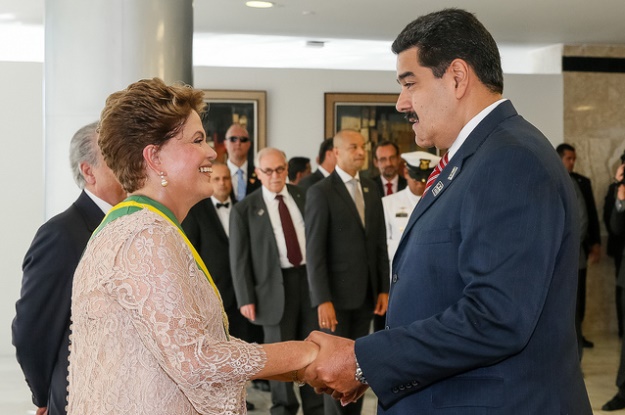
BY Oliver Stuenkel | April 25, 2016
Brazil’s withdrawal from the world is damaging the rest of the continent, even as it becomes a battleground in Rousseff’s impeachment.
http://americasquarterly.org/content/how-brazils-crisis-bleeding-rest-south-america
Until a few years ago, Brazil possessed one of the most active foreign policies in the developing world. It built an impressive network of embassies and consulates, opening more than 60 posts during the 2000s alone in Africa, Asia and beyond. Brazil also actively engaged in debates ranging from humanitarian intervention in Libya to rethinking development aid, South-South relations and regional integration.
Yet as Brazil is consumed by the worst political and economic crisis in decades, the country has turned inward. This has contributed to a regional power vacuum and a sense of paralysis when it comes to devising regional approaches to South America’s most pressing challenges. For example, Venezuelan President Nicolás Maduro’s increasingly blatant disregard for even basic democratic standards has seen a less meaningful regional reaction because of Brazil’s problems. Given Brazil’s dominant role in South America – representing roughly half its GDP, population and territory – its travails are inevitably bad news for the continent.
The current crisis is only part of the story. Even prior to reelection in 2014, when the government refused to acknowledge that Brazil’s economy was in trouble, Dilma Rousseff failed to articulate a coherent foreign policy doctrine. Brazil’s international strategy since 2011 was shaped, above all, by the president’s astonishing indifference to all things international and… continue here.








